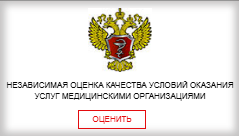Background information
Periodontitis is inflammation of the periodontium. The periodontium is a connective tissue, which fills in the narrow space between a tooth and its bone cavity (dental arcade). There are nerves, blood and lymphatic vessels nourishing the tooth in the periodontium. The periodontium main functions are dampening and trophic ones. When chewing food, the periodontium damps the load on the tooth and evenly distributes it on the bones.
There are acute and chronic periodontitises. The acute type is rarer, which is explained by the contents outflow, thanks to which periodontitis may last long without disease signs in the setting of advancing inflammation.
Causes
Periodontitis most often develops due to infecting of the periodontium. Depending on the infection penetration path, there are interdental and extradental periodontitises. Interdental periodontitis is mainly a complication of untreated pulpitis. Extradental periodontitis develops because of the inflammatory process extending from the surrounding tissues (osteomyelitis, sinusitis).
Moreover, there are traumatic and drug-induced periodontitises. The latter most often develops in pulpitis maltreatment when strong drugs or irritating materials run into the periodontium (for example, an arsenic paste, formalin, phenol)./p>
Symptoms
Periodontitis provokes sharp pains in the tooth area, which increases when you touch the tooth. The lip, cheek and gum are swollen, the tooth is mobile. Sometimes the gum has a festering hole. This is a fistula, i.e. a canal, which is formed to outflow the contents from the infected cavity.
Chronic periodontitis may cause unpleasant and mild pain (feeling of heaviness, spreading, discomfort, painfulness when applying biting force on this tooth). Chronic periodontitis may remain latent for a long time and can be detected in an X-ray image when treating the adjacent teeth.
Diagnostics
A diagnosis is made based on indicative clinical findings combined with an X-ray examination. When examining, the doctor may see reddened or swollen gum, small festering wounds.


